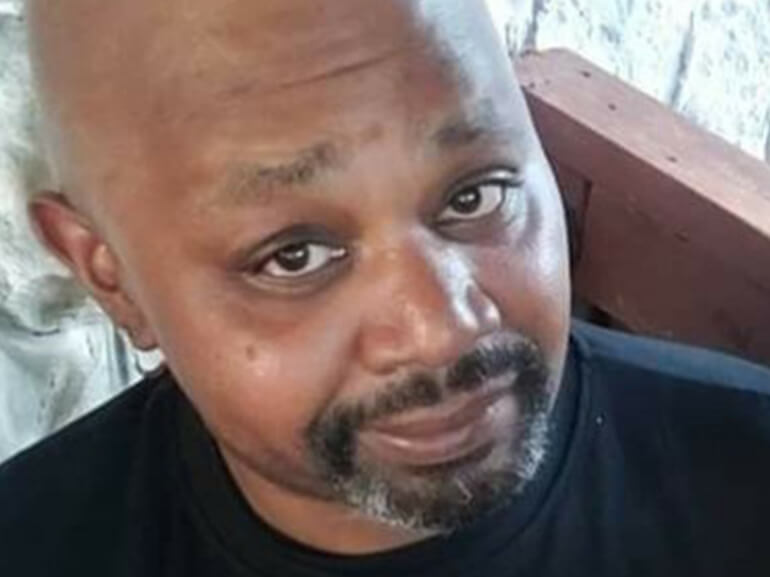Chris' story

St. Louis native Chris Love, 52, in his own words, “is a laid-back, easy-going guy.” He worked as a driver for a senior citizen day care program and loved playing basketball and spending time with his four children and granddaughter. Chris had faced health challenges before, so in early March when his mouth was “twisted” and he unable to talk, a family member immediately called 911.
Chris was rushed to the hospital and it was quickly determined that he was having a stroke. With no time to lose, he was given tPA, also known as tissue plasminogen activator, which dissolves blood clots that cause a stroke and improves blood flow. If administered within in a short window of time, tPA can have significant impact on a positive recovery.
While in the hospital, Chris was monitored closely; he had a CT scan, an MRI and staff that checked on him every hour. But two days after his initial stroke, he was found on the floor; he had suffered another stroke, and this one was worse. Chris spent the next two days with a feeding tube. Once stable, he was transferred to SSM Health Rehabilitation Hospital – Bridgeton to begin his long recovery journey.
Upon arrival, Chris was unable to speak or walk and was completely dependent on others for all aspects of his activities of daily living. He was on a modified diet of pureed foods and thickened liquids due to swallowing difficulties. Chris was not only confused, but depressed. “I was emotionally all over the place, like a rollercoaster,” he admitted. Unable to verbalize his own goals, Chris’ care team at SSM Health Rehabilitation Hospital helped set goals for returning to the life he loved.
Because of his restricted diet and severe language impairments, Chris’ speech therapist worked with him on basic exercises to regain his voice and communicate basic needs with gestures. He practiced following simple, two-step directions for cognitive retraining. Therapists also worked with Chris on swallowing therapy so he could return to a regular diet.
At the time of his admission, Chris needed the assistance of two people to walk just a few steps and stairs were out of the question. In physical therapy, Chris worked with therapists to improve his balance, endurance, coordination and strength. As an athlete, Chris particularly enjoyed these sessions; he found that he pushed himself harder to improve every day.
Chris’ occupational therapists helped him become more independent in his personal care, including bathing and dressing. They also worked with him to safely transfer from laying to sitting and sitting to standing as well as how to get in and out of a vehicle. In preparation for discharge, Chris’ sister came to the hospital for family training so she could learn how to safely assist Chris while helping to increase his functional independence.
After five weeks of intensive therapy, Chris made amazing strides toward his recovery. He was able to eat a regular diet, say his name, follow simple directions and use gestures to communicate his needs. Chris had progressed from being unable to walk to walking with minimal assistance with a cane as well as being able to go up a full flight of steps with the help of just one person. He was also able to get himself dressed and bathe with a little help using adaptive equipment.
During his time at SSM Health Rehabilitation, Chris said that he learned that “he was stronger than what he imagined.” He also said that it is important for people who are recovering “to have patience and trust in the process.”
Chris has high praise for the entire hospital staff, calling them “excellent.” He had particular appreciation his case manager, who was very helpful and worked to help find Chris a wheelchair ramp for his home.
Chris plans to continue his recovery at home with the help of his family and the SSM Health Rehabilitation Network’s Day Institute.